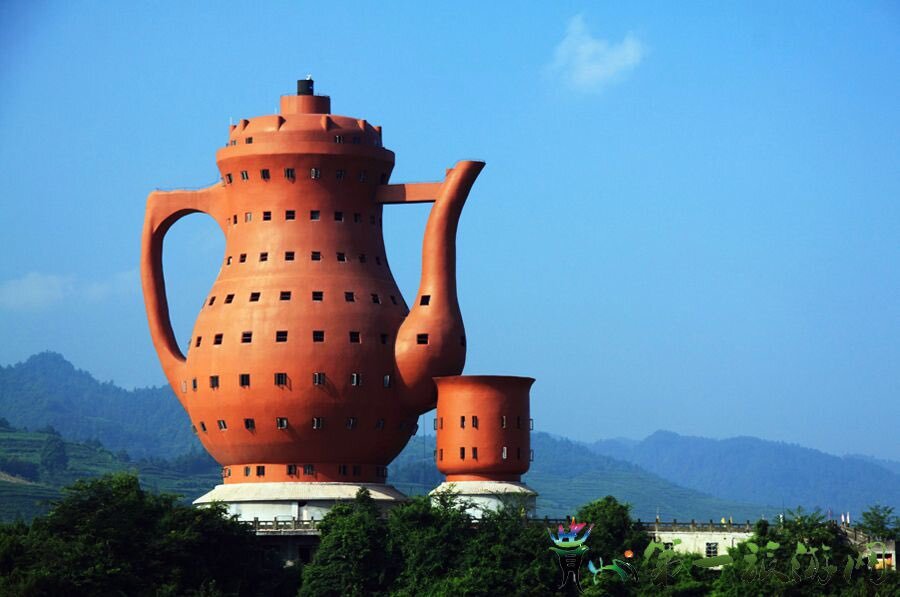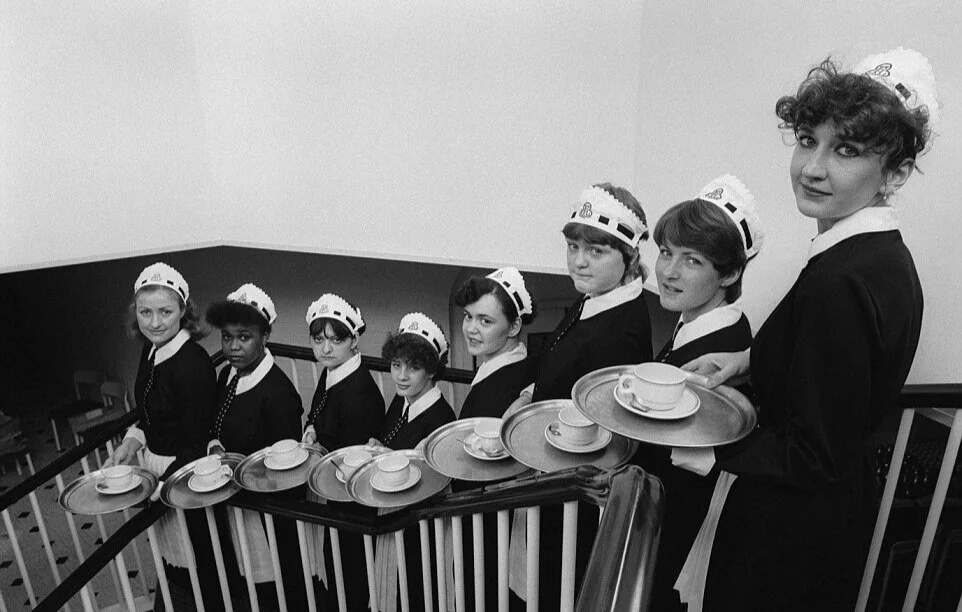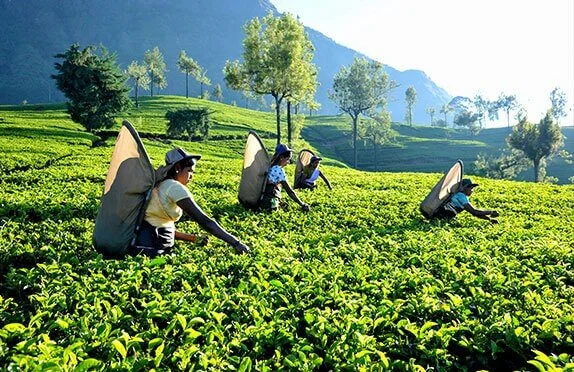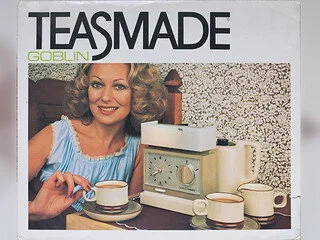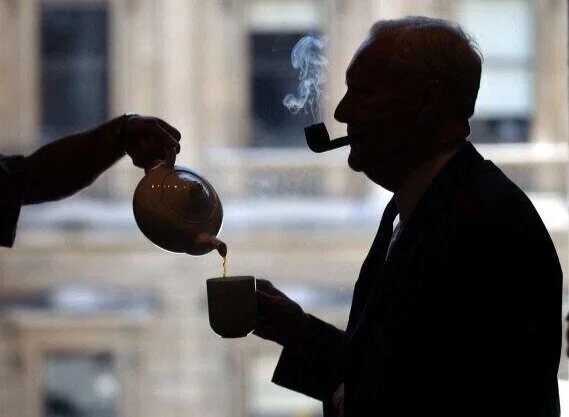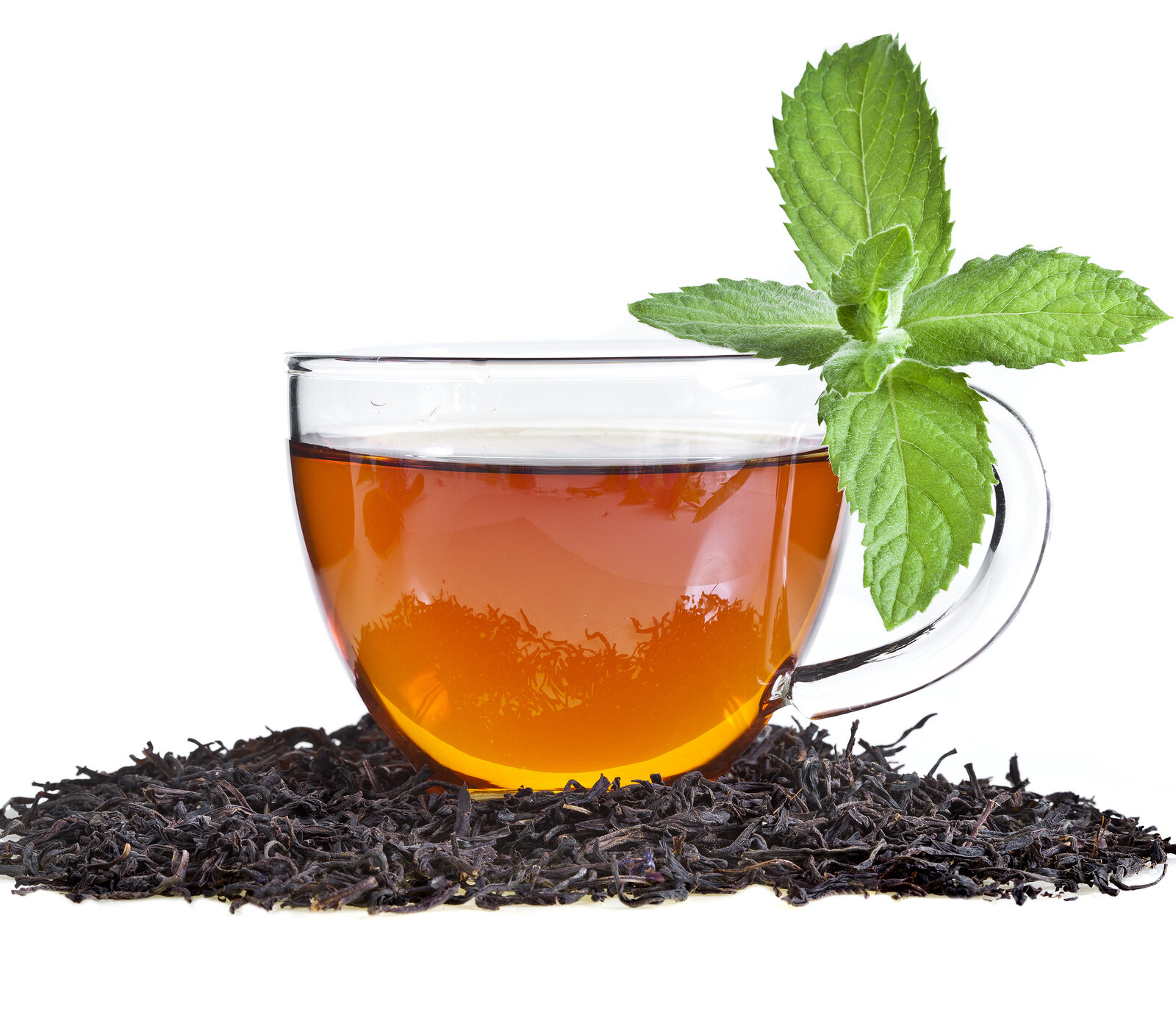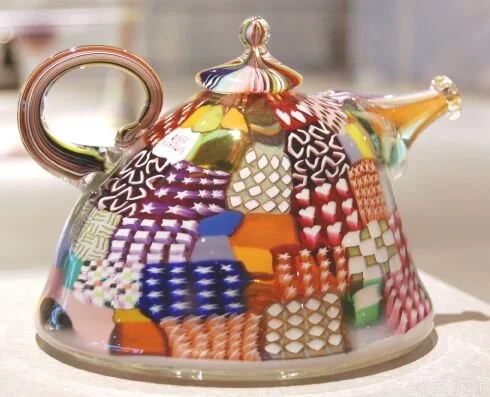By The Landlord
“Tea, though ridiculed by those who are naturally coarse in their nervous sensibilities, will always be the favourite beverage of the intellectual.” – Thomas de Quincey
“If you are cold, tea will warm you;
if you are too heated, it will cool you;
If you are depressed, it will cheer you;
If you are excited, it will calm you.” – William Gladstone
“There are few hours in life more agreeable than the hour dedicated to the ceremony known as afternoon tea.” – Henry James, The Portrait of a Lady
“While there is tea, there is hope.” ― Arthur Wing Pinero
“I am in no way interested in immortality, but only in the taste of tea.” – Lu T'ung, The Book of Tea
“There is something in the nature of tea that leads us into a world of quiet contemplation of life.” ― Lin Yutang, The Importance of Living
“Tea is the magic key to the vault where my brain is kept.” – Frances Hardinge
The whistle and rattle of kettle. The pouring and plop of steaming hot water. The uncurling of dried leaf, infusing, releasing, flooding with flavour. The tinkle of cup on saucer. The stirring, then tap of spoon. And the irresistible ahh at first sip. You might well be having one right now, joined by millions around the world, in poverty or wealth, across all backgrounds, working or relaxing, chatting, or reading a book, perhaps listening to the radio. It might be hot, or cold and raining outside, but what finer accompaniment to any activity than to leaf through our collections and pour out songs about tea.
Tea is associated as being a quintessentially British drink, but while 63% of people drink tea daily on these shores, of course there’s a far bigger history and human habit to infuse. Enjoyed extensively across East Asia, particularly China and Japan, as well as India and beyond, for many centuries, among the first tea drinking reference dates to the 3rd century AD, in a medical text written by Hua Tuo, and it was very much in fashion during the Tang dynasty, as indicated above by Lu T’ung.
It wasn’t until Portuguese merchants began to flood it into Europe in the 1500s, and it arrived England until 1600, brought in by the voracious East India Company, who later set up mass plantations in India and Ceylon, which later became Sri Lanka, that it began to catch on within the British isles. The first publicly sold in England was in 1657 from a coffee house owned by one Thomas Garway in Exchange Alley in the City of London. It was there that Samuel Pepys recorded in his diary his very first taste in 1660 - “a China drink”.
Coffee houses really caught on in the 17th century, but not so much tea rooms, perhaps because it was simply easier, and cheaper, for people to make their own tea at home. But tea rooms really began to flourish in the late Victorian period and by the early 20th century London in particular was flooded with tea rooms for the posh to the mass market, such as the Lyons Corner Tea Rooms, which became a global brand, where millions of customers were served by armies of ‘Nippy’ waitresses in their distinctive uniforms
But what is it all about? Tea is essentially an aromatic beverage made by by pouring boiling or very hot water over fresh or cured leaves of an evergreen shrub, Camellia sinensis, with origins in China and East Asia. It has many types and flavours and brands, from Chinese green to Darjeeling, Earl Grey to gunpowder and Lapsang Souchong, with a variety of health benefits, from antioxidants to aiding digestion. Some are bitter or astringent, sweet, nutty, floral, or grassy, and stimulating with a level of caffeine lower than coffee but still significant.
Tea is variously classified as white, yellow, green, oolong, black, and the darker, post-fermented green, according to levels of age when picked, untitled or wilted, crushed, unoxidised or otherwise. The best tea, and how to prepare it, is often up to fierce debate, for for the purposes of this topic, while songs might mention different types, the key word is tea, and anything that goes with it.
Tea plants require a particular climate and soil to thrive, needing an optimum of 127cm of rainfall per year and they prefer acidic soils, with the highest-quality tea plants 1500m above sea level. While parts of East Asia and India can provide this perfect combination, there are also extensive tea plants in Kenya and Rwanda and in some marine areas around the world, from New Zealand, Washington DC and even Cornwall.
Tea is a cultural phenomenon designed to wake you up in the morning or send you to sleep at night and everything in between. And whether you are having it in posh China cups with royalty or high tea with cake and sandwiches, in big mug with a bunch of lads in a building site, whether it is part of an ornate ceremony in a beautiful Japanese garden based on the principles of sabi (寂) and wabi (侘), gunpowder tea poured from tall pots in Mali, brewed in a Russian samovar, very sweet sugared tea in Morocco or Turkey, or sat around a camp with desert bedouin, it almost always seems to be about refreshment, rejuvination, and relaxation.
In the past year, perhaps derived from lockdown, I’ve developed a new tea habit, picking fresh nettle leaves and infusing them with with a bit of mint. This isn’t strictly tea as in the plant, but it is a tea as in a hot water infusion, so it still counts. The health benefits are apparently extensive.
But what about tea here at the Song Bar? Unsurprisingly there’s also an army of tea drinkers eager to say more about it and we’re trying to brew it even faster than the Lyons heyday.
Tea isn’t perhaps the drink you’d associate first and foremost with musicians, but famously Boy George said: “I would rather have a cup of tea than sex”, Mick Jagger loves his cuppa, and reckons: “I got nasty habits; I take tea at three.”
Mary J. Blige, perhaps as much as vocal cure confesses: “I still get nervous about singing. I drink tea with honey and lemon before every concert.”
From other spheres, here's survival expert Ray Mears: “Tea: was there ever a more universal and life-sustaining beverage.”
American author of Urban Shaman C.E. Murphy meanwhile describes the experience of having tea in Ireland. ““In Ireland, you go to someone's house, and she asks you if you want a cup of tea. You say no, thank you, you're really just fine. She asks if you're sure. You say of course you're sure, really, you don't need a thing. Except they pronounce it ting. You don't need a ting. Well, she says then, I was going to get myself some anyway, so it would be no trouble. Ah, you say, well, if you were going to get yourself some, I wouldn't mind a spot of tea, at that, so long as it's no trouble and I can give you a hand in the kitchen. Then you go through the whole thing all over again until you both end up in the kitchen drinking tea and chatting.”
Perhaps then there is no greater tea figure in popular culture than housekeeper Mrs Doyle in Father Ted, who in one episode is given as a present, to her horror, a tea machine to save her from the ‘misery’ of making tea. “Maybe I like the misery,” she grumbles. She secretly vandalises the machine, and then confesses that she didn't want this gift after all.
Teasmade machines are horrible aren’t they? I remember my parents had one in the 1970s - a health-and-safety nightmare of a swivelling, twitching boiling water pipe moving from cup to cup in horribly stewed concoction with sour milk.
Longstanding MP and social justice campaigner Tony Benn attributed the liquidity and articulacy of his speeches to his fondness for the drink. “I’ve drunk enough tea in my life to float the QE2.”
But like the shrivelled leaf itself, by pouring some hot water in our time-spanning bar, we’ve also managed to bring back a even greater number of distinguished guests back to life, to enjoy a convivial cuppa and talk about the big brew.
“I say let the world go to hell, but I should always have my tea,” says Fyodor Dostoevsky, from Notes from Underground.
“I must drink lots of tea or I cannot work! Tea unleashes the potential which slumbers in the depth of my soul,” demands Leo Tolstoy. Don’t panic Leo, it’s on its way.
“But!” Interrupts fellow Russian Mikhail Bulgakov, “tea is not vodka, it is impossible to drink it a lot.”
Can you have too much tea though? Here’s someone else, never short of an opinion:
“Tea's proper use is to amuse the idle, and relax the studious, and dilute the full meals of those who cannot use exercise, and will not use abstinence,” says Samuel Johnson with his Essay on Tea, 1757, in his own distinctive way, expressing tea’s health benefits.
Samuel’s great friend James Boswell joins him for a cup. “I am so fond of tea that I could write a whole dissertation on its virtues. It comforts and enlivens without the risks attendant on spirituous liquors. Gentle herb! Let the florid grape yield to thee. Thy soft influence is a more safe inspirer of social joy.”
“Rather! You can never get a cup of tea large enough or a book long enough to suit me,” adds C.S. Lewis.
“But indeed I would rather have nothing but tea,” splashes Jane Austen with a dash of Mansfield Park.
“My hour for tea is half-past five, and my buttered toast waits for nobody,” says Wilkie Collins with a copy of The Woman in White.
“Tea is one of the main stays of civilisation in this country,” says George Orwell with his Smothered Under Journalism, 1946.
There’s a lot of English tea going down here, it’s all very well hearing from these authors. What about the detail and original tea drinkers?
“Come oh come ye tea-thirsty restless ones – the kettle boils, bubbles and sings, musically,” adds Indian poet Rabindranath Tagore.
And going further back, Lu T’ung, Chinese poet of the Tang Dynasty is here again too, with his poem Seven Bowls of Tea 七碗诗 卢仝(唐. 790~835)
The first bowl moistens my lips and throat; 一碗喉吻潤,
The second bowl breaks my loneliness; 二碗破孤悶,
The third bowl searches my barren entrails but to find 三碗搜枯腸,
Therein some five thousand scrolls; 惟有文字五千卷,
The fourth bowl raises a slight perspiration 四碗發輕汗,
And all life's inequities pass out through my pores; 平生不平事盡向毛孔散,
The fifth bowl purifies my flesh and bones; 五碗肌骨清,
The sixth bowl calls me to the immortals. 六碗通仙靈,
The seventh bowl could not be drunk, 七碗吃不得也,
Only the breath of the cool wind raises in my sleeves. 唯覺兩腋習習清風生。
Japanese scholar Kakuzō Okakura wrote in his 1906 The Book of Tea (茶の本, Cha no Hon), that “Tea ... is a religion… Teaism is a cult founded on the adoration of the beautiful among the sordid facts of everyday existence. It inculcates purity and harmony, the mystery of mutual charity, the romanticism of the social order. It is essentially a worship of the Imperfect, as it is a tender attempt to accomplish something possible in this impossible thing we know as life.”
And it’s ritualistic qualities are also defined in Muriel Barbery’s The Elegance of the Hedgehog: “When tea becomes ritual, it takes its place at the heart of our ability to see greatness in small things. Where is beauty to be found? In great things that, like everything else, are doomed to die, or in small things that aspire to nothing, yet know how to set a jewel of infinity in a single moment?”
Tea is all about the small details, and so we’re also pouring out some poetry, let’s finish with Carol Ann Duffy, here to offer her own Rapture:
“I like pouring your tea, lifting
the heavy pot, and tipping it up,
so the fragrant liquid streams in your china cup.
Or when you’re away, or at work,
I like to think of your cupped hands as you sip,
as you sip, of the faint half-smile of your lips.
I like the questions – sugar? – milk? –
and the answers I don’t know by heart, yet,
for I see your soul in your eyes, and I forget.
Jasmine, Gunpowder, Assam, Earl Grey, Ceylon,
I love tea’s names. Which tea would you like? I say
but it’s any tea for you, please, any time of day,
as the women harvest the slopes
for the sweetest leaves, on Mount Wu-Yi,
and I am your lover, smitten, straining your tea.
- Tea.”
So then, it’s time to get your own ideas brewing and leaf through music collections to see what infusions can be created. Stirring the pot, and getting ready to pour, I’m delighted to welcome back to the table the very discerning DiscoMonster! Serve up your suggestions in comments below by 11pm UK Tim on Monday for playlist tea servings next week. Fancy another?
New to comment? It is quick and easy. You just need to login to Disqus once. All is explained in About/FAQs ...
Fancy a turn behind the pumps at The Song Bar? Care to choose a playlist from songs nominated and write something about it? Then feel free to contact The Song Bar here, or try the usual email address. Also please follow us social media: Song Bar Twitter, Song Bar Facebook. Song Bar YouTube, and Song Bar Instagram. Please subscribe, follow and share.
Song Bar is non-profit and is simply about sharing great music. We don’t do clickbait or advertisements. Please make any donation to help keep the Bar running:

